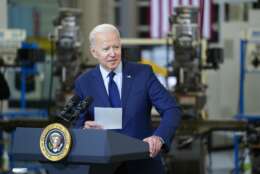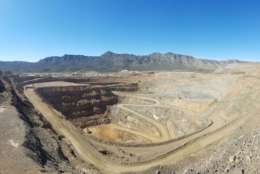Energy Department
-
Chris Rankin, the Energy Department's Nevada National Security Site's chief information officer and the director for information technology, said having a scalable, flexible and modern network is more important than ever.
July 22, 2021 -
The ongoing ransomware attacks have everybody spooked. Congress and the Cybersecurity and Infrastructure Security Agency are both contemplating ways to get industry to do something they've supposedly been doing for years.
July 01, 2021 -
The Energy and Homeland Security departments have agreed to work together to cut energy consumption and carbon production by DHS facilities.
June 29, 2021 -
Biofuel will be part of the country's energy future - that's why the Energy Department's ARPA-E is spending some $35 million in grant dollars to improve the efficiency of making this class of fuel.
June 21, 2021 -
DoD conducted a 100-day review of its critical supply chains at the request of the White House.
June 10, 2021 -
In today's Federal Newscast, companies manufacturing electronics may opt out of working with the Defense Department because of the cost of the Cybersecurity Maturity Model Certification program.
June 09, 2021 -
The Biden administration is asking for a 2.4% increase and a 14% increase in federal IT and cybersecurity spending, respectively, in fiscal 2022.
June 01, 2021 -
Researchers at the Pacific Northwest National Laboratory have developed and are in the midst of commercializing a way to scan shoes still on their owners' feet.
May 14, 2021 -
In today's Federal Newscast, a new Government Accountability Office report finds that the Defense Department is relying too much on GPS.
May 11, 2021 -
Chris Ritter, at the Idaho National Laboratory, said that while artificial intelligence is about getting computers to think like humans, machine learning is about having pre-programmed devices.
May 04, 2021 -
In today's Federal Newscast, the Energy Department and the Cybersecurity and Infrastructure Security Agency are leading a new 100-day effort to improve the cybersecurity of the electric infrastructure.
April 21, 2021 -
How the federal government can bolster domestic production of rare-earth elements crucial to electric vehicles and other energy imperatives.
April 20, 2021 -
The Energy Department has launched a $30 million grant program to support increasing domestic supplies of rare-earth element.
April 20, 2021 -
Energy's Pacific Northwest National Laboratory and Washington State University have reached a milestone to convert biocrude into diesel.
April 06, 2021 -
Fred Streitz, the chief AI scientist in DOE’s Artificial Intelligence and Technology Office, said all of the agency’s offices are using AI at some level, and said the use cases are getting more advanced.
March 31, 2021













